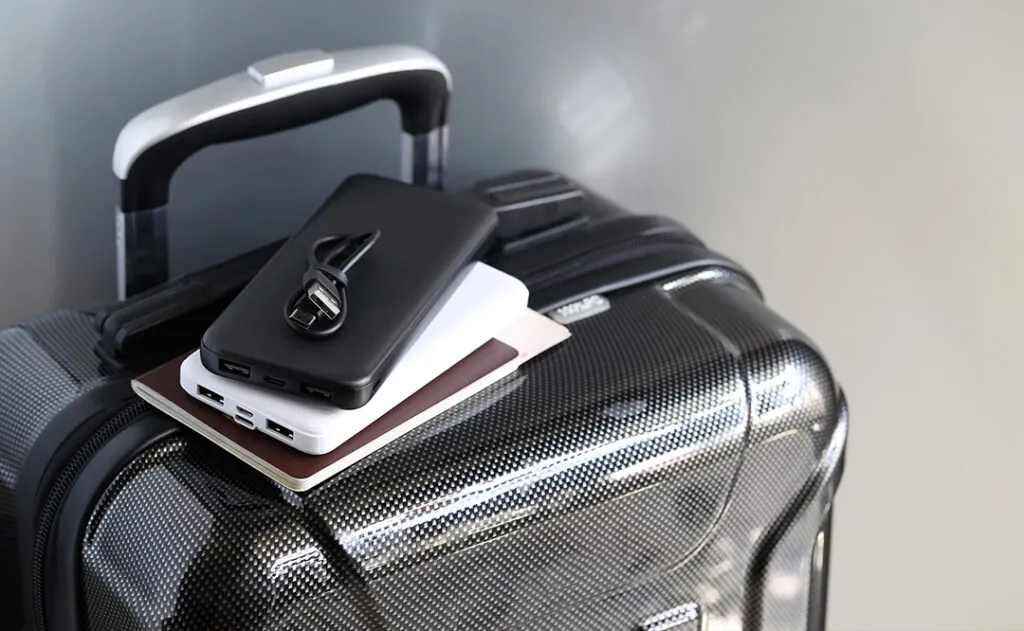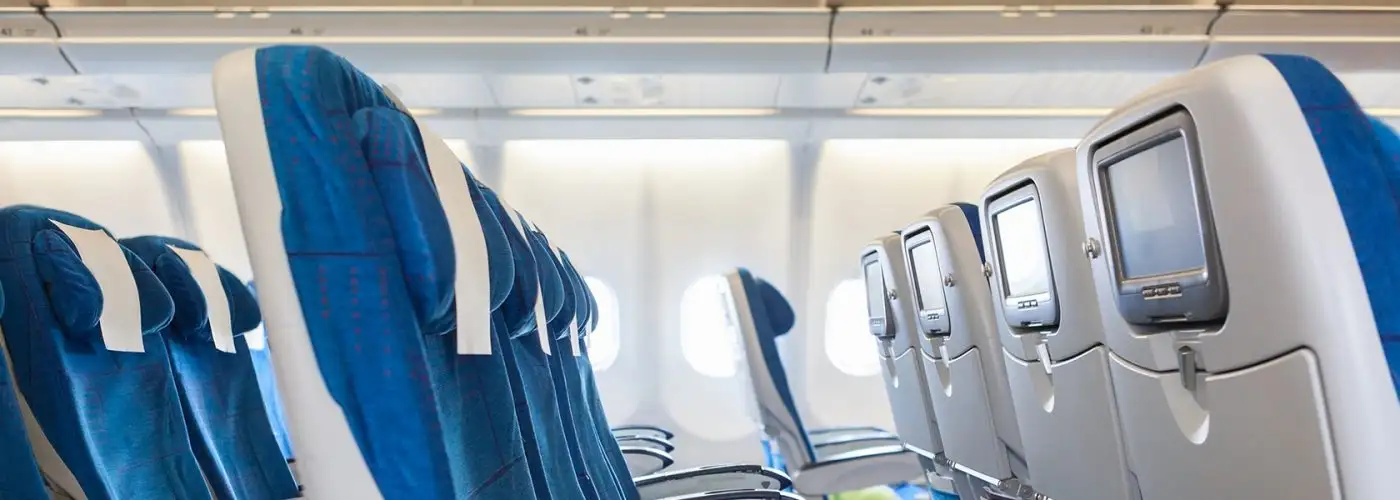From phones to laptops, travelers bring a lot of batteries with them when they fly. But can you bring batteries on a plane? Yes, you can bring batteries on a plane, although whether you can bring them in a carry-on or pack them in a checked bag depends on the type of battery.
The TSA’s “Can I Bring” search tool breaks it down for you: Dry batteries (your common household AA, AAA, C, and D batteries) are allowed in both carry-on and checked bags. Lithium batteries with more than 100-watt hours or less can only be brought aboard a plane in carry-on baggage. Nonspillable wet batteries are allowed in carry-on bags with limits on quantity and size and in checked bags with no restrictions. Spillable batteries are not allowed to be brought on the plane, except for those in wheelchairs.

What Kinds of Batteries Can You Bring in Carry-On Baggage?
The Federal Aviation Administration (FAA) says, “Passengers can carry most consumer-type batteries and portable battery-powered electronic devices for their own personal use in carry-on luggage.”
Batteries allowed in carry-on baggage include:
- AA batteries
- AAA batteries
- C batteries
- D batteries
- 9-volt batteries
- Button-sized cell batteries
- Dry cell rechargeable batteries such as Nickel Metal Hydride and Nickel Cadmium
- Consumer-sized Lithium-ion batteries (up to 2 grams of lithium per battery)
- Nonspillable wet batteries limited to 12 volts and 100 watt hours per battery
This covers most types of batteries the average traveler would bring on a plane, including camera batteries, laptops, cell phones, e-readers, and portable chargers.
What Kinds of Batteries Can You Bring in Checked Baggage?
Lithium-ion batteries can overheat and cause fires, so they cannot be put in checked baggage on planes. This applies to any bag that gets put in the cargo hold—so if you have to gate-check your bag, remove any Lithium-ion batteries first.
Aside from spare lithium metal and lithium-ion batteries (including external battery packs, power banks, and e-cigarettes), all other batteries that are allowed in carry-ons are also allowed in checked baggage.
Before you pack any spare batteries, make sure to inspect them for damage and protect them for the journey. The FAA warns, “Batteries must be protected from damage and short circuit or installed in a device.” To protect batteries before packing, keep spare batteries in a protective pouch or case and place tape over the terminals of unpackaged batteries.
The FAA also notes, “Battery-powered devices—particularly those with moving parts or those that could heat up—must be protected from accidental activation.”
I was once on a flight that was significantly delayed because a passenger admitted they had left their laptop in their carry-on, which had been gate-checked. The flight had to be held until the ground crew could relocate the laptop from the bag underneath the plane into the cabin. Batteries are a safety concern on flights that are taken very seriously.
Is There a Limit to How Many Batteries You Can Bring on a Plane?
Batteries and battery-powered devices must be for personal use (not for sale). There is a two-spare limit on large lithium-ion and nonspillable batteries.
Can You Bring Smart Luggage on Planes?
Many suitcases now have integrated chargers that can be used as backup batteries. These smart suitcases have lithium batteries built in and can be brought on a plane only as carry-on luggage. If you must check your bag, remove the battery first.
What Should You Do if Your Battery Overheats on a Plane?
Call a flight attendant immediately if you notice your battery or device expanding, overheating, smoking, or burning. Do not dump water on the battery in an attempt to put out a fire, as it can make a lithium-ion battery fire worse. Cabin crew are trained to handle these in-flight emergencies with the correct equipment.
You Might Also Like:
• 10 Things You Should Never Say to a Flight Attendant• What Not to Do When Exiting a Plane During an Emergency
• The Worst Days to Visit NYC: Surprising Dates to Avoid
• 11 Travel Clothes That Feel Like Pajamas (But Look First Class)
• 7 Things You Should Always Do on a Plane
We hand-pick everything we recommend and select items through testing and reviews. Some products are sent to us free of charge with no incentive to offer a favorable review. We offer our unbiased opinions and do not accept compensation to review products. All items are in stock and prices are accurate at the time of publication. If you buy something through our links, we may earn a commission.
Related
Top Fares From
Today's Top Travel Deals
Brought to you by ShermansTravel
12-Night Peru Escorted Tour, Incl. Sacred...
Wingbuddy
 vacation
$2198+
vacation
$2198+
16-Night Hawaiian Islands Cruise Over Christmas...
Princess Cruises
 cruise
$1579+
cruise
$1579+
Ohio: Daily Car Rentals from Cincinnati
85OFF.com
 Car Rental
$19+
Car Rental
$19+




